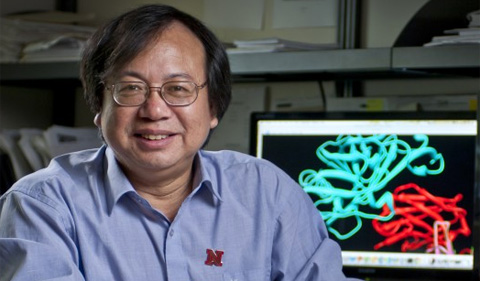The Chemistry & Biochemistry Department presents Dr. Joel Rosenthal on “Development and Mechanistic Interrogation of New Catalyst Architectures for the Conversion of Carbon Dioxide to Solar Fuels” on April 13, at 4 p.m. in Walter 235.
Rosenthal is Professor of Chemistry and Biochemistry at the University of Delaware.
Abstract: Current concerns over energy and environmental sustainability highlight the need for renewable energy generation on a global scale. In the future, the sun may have a predominate role in worldwide energy production and distribution logistics, however, cost-effective energy storage is needed for sunlight to be harnessed as humanity’s primary energy source. An intriguing strategy in this regard is the electrochemical reduction of CO2 to CO, which generates an energy rich commodity chemical that can be coupled to liquid fuel production, however there are few affordable platforms that can efficiently promote this transformation. In response to this need, we have developed several inexpensive cathode materials for CO2 reduction that can be used in conjunction with ionic liquids and other weak organic acids to effect the electrocatalytic conversion of CO2 to CO. The systems we will describe are selective for production of CO, and display activity levels that have historically only been observed using precious metal catalysts. In addition to developing new catalytic assemblies for CO2 reduction and solar fuel production, we have also worked to elucidate the molecular design principles that are attendant to the energy efficient activation of CO2. Interrogation of the pathway by which our catalyst systems activate CO2 using a suite of electrochemical and surface analysis techniques, has shed light on some of the factors that drive efficient CO generation. Implications for the future development of efficient architectures that can promote CO2 reduction with high selectivity and efficiency will be discussed.




















Comments